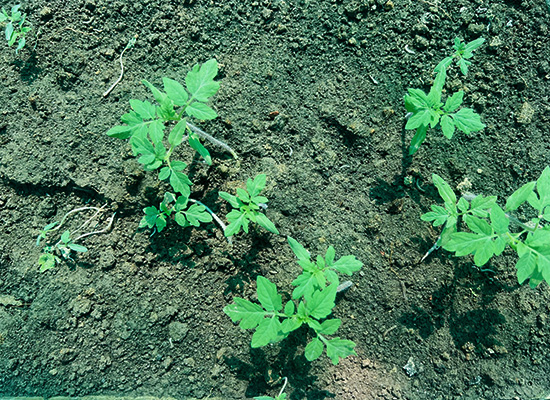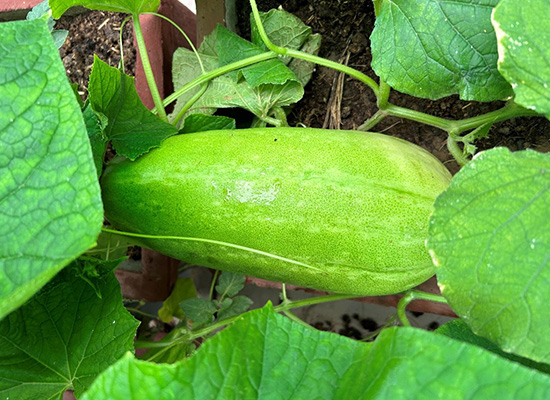Image Source:Freepik
Essentially, all life depends upon the soil… There can be no life without soil and no soil without life; they have evolved together.” is a popular saying of Dr. Charles E Kellogg, Soil Scientist and Chief of the USDA’s Bureau for Chemistry and Soils
It’s indeed true because soil plays many roles and collectively has a huge impact on human, animal, and plant lives. Food is the main source of life and out of everything good that soil provides, the production of food is the most important role of Soil. We just can’t ignore the fact that approximately 95% of our food is produced from the soil[Sk1] [RC2]. For this reason, it is very important to maintain the good quality of soil to enjoy healthy & fresh food, plants, and basically the entire ecosystem altogether.
Healthy soil is the foundation of nutrient-rich foods. Poor quality of soil impacts the nutritional value of the produce we eat which makes it imperative to maintain the quality of soil to continue consuming farm fresh food and reap the many health benefits.
Let’s dig deeper to understand how soil health is crucial for the future of food, agriculture, and overall life.
Why Soil Health is Important?

We literally are hugely dependent on soil for health, agriculture, or water retention. This might be something that you don’t think about too often. But, when you get to know the many benefits it upholds, your perception will surely change.
There are several key factors which are important to keep the soil healthy and get numerous benefits in return. A few of them are given below:
- Healthy soil is responsible to turn dead matter and minerals into vital plant nutrients
- It helps to produce chemical-free food which is healthy, sustainable, and profitable
- It helps control plant diseases
- It leads to healthy and efficient crop production
- Soil is also used as a protection against drought
- Healthy soils can also store carbon while preventing it from entering the atmosphere as CO2
- Healthy soil retains water and nutrients
- It has the capacity to sustain the environment by performing the crucial functions
- It helps to limit the impacts of climate change
It helps to limit the impacts of climate change

Food production highly relies on the health of the soil. Healthy soil promotes the growth of healthy food due to a variety of reasons. Keep reading!
- Nutrient Availability: Healthy soil contains a balanced mix of essential nutrients such as nitrogen, phosphorus, potassium, calcium, and magnesium. These nutrients are vital for plant growth and development. When the soil is rich in these nutrients, plants can absorb them and convert them into nutritious components within their tissues, making the harvested fruits and vegetables nutrient-dense.
- Soil Organic matter: Healthy soil is rich in organic matter, which includes decomposed plant and animal materials. This organic matter provides a continuous supply of nutrients to plants. As plants uptake these nutrients, they become part of the food chain thus lead to nutrient-rich produce.
- Beneficial Microorganisms: A healthy soil ecosystem hosts a diverse community of beneficial microorganisms like bacteria, fungi, and protozoa. These microorganisms contribute to nutrient cycling, breakdown of organic matter, and the transformation of minerals into forms that are more readily available to plants as per World Agroforestry (ICRAF)
- Protect Plant Health: Healthy soil promotes stronger plants. When plants are healthy, they can ward off pests and diseases more effectively, reducing the need for chemical interventions. As a result, homegrown foods are less likely to have chemical residues and are more nutritious due to the absence of harmful substances.
- Sustainable Farming Practices: Healthy soil includes practices which focus on building soil health and fertility over time, leading to long-term benefits for both the environment and the crops. Sustainable farming methods like Organic cultivation help improve soil quality. Organic farming has no such chemicals and fertilizers, it uses manure-based fertilizers instead and actually improves soil quality
- Support Biodiversity: Healthy soil encourages biodiversity above and below the ground. A diverse range of plants and microorganisms supports each other, creating a balanced ecosystem. As a result, the plants have access to a wider range of nutrients, leading to more nutrient-rich home foods.
- Nutrient Density and Taste: Healthy soil leads to increased nutrient density in the crops. When plants have access to an abundance of nutrients, they can include more vitamins, minerals, and antioxidants, making the produce more nutritious. Additionally, nutrient-rich foods often have better flavours, aromas, and textures, making them more enjoyable to eat.
What Are The Threats To Healthy Soil?

According to a key pointer mentioned at the Global Symposium on Soil Erosion by Food and Agriculture Organization of the United Nations, 33% of the Earth's soils are already degraded and over 90% could become degraded by 2050.
The ever-growing demand for food production due to the rapid increase in population is one of the major factors why the soil is put under pressure. Combine it with advanced agriculture and machine technology and the situation gets even worse. Moreover, pollution, overgrazing, over cultivation are other facts which damage the soil health.
If we continue to regularly disturb the structure of soil, it will, in turn affect the functioning of the soil. If the soil quality gets unhealthy then it will release the carbon which causes greenhouse gas emissions. The quality of food produce will also be degraded and there might be a time when we deprive of nutrient-rich food which is mainly the result of healthy soil. Water logging, loss in crop yields, and direct impact on farmers are some of the major threats to healthy soil.
We are sure that nobody would want to face this scenario. Therefore, it is imperative to understand the gravity of the situation and help protect soil health.
Final Thoughts
Soil scientists say that by prioritizing soil health and employing sustainable agricultural practices, we can ensure more abundant and nourishing food production. Sticking to sustainable soil management for increasing soil health. The right education for farmers and food producers can also be supportive for maintaining soil health and specially producing more nutrient-rich and healthy food while adhering to all the sustainable practices can help preserve soil health.
On an individual level, create awareness about organic food and encourage others to eat organic meals from authentic meal providers like OMKITCHEN to get the many health benefits and accelerate organic farming and maintain soil health in the long run.
OMKITCHEN's philosophy is simple: promote zero-waste and sustainable eating by using organic and residue-free ingredients sourced directly from farmers and organic associations across the country.

